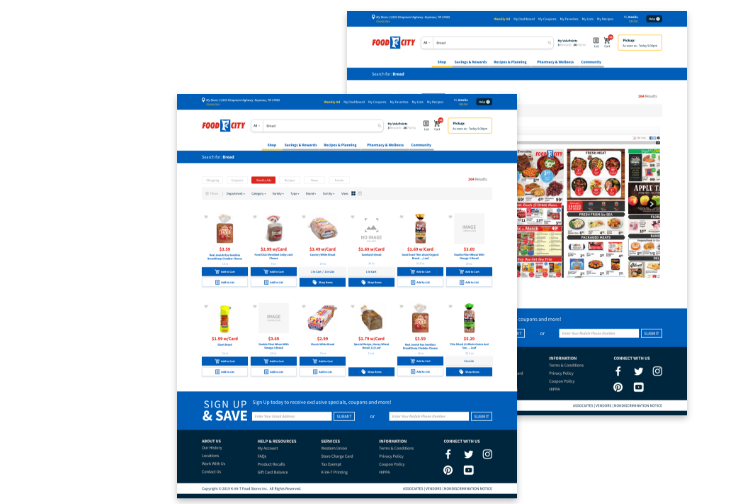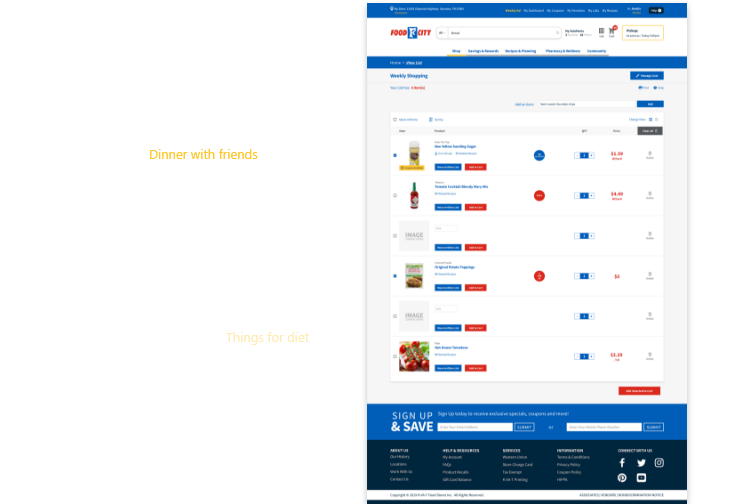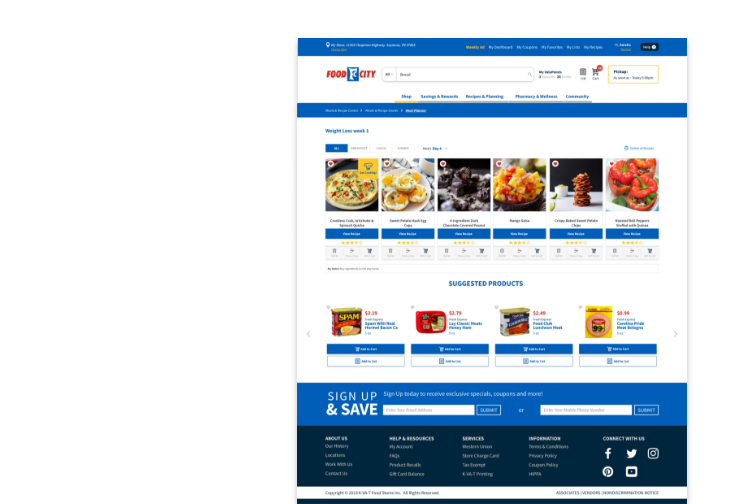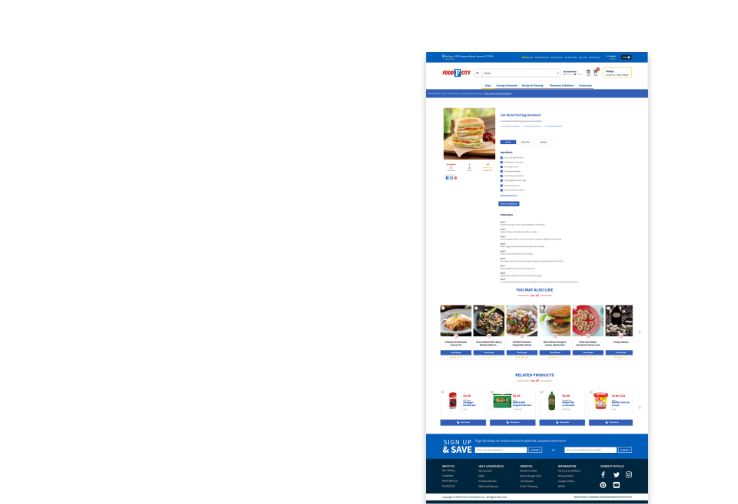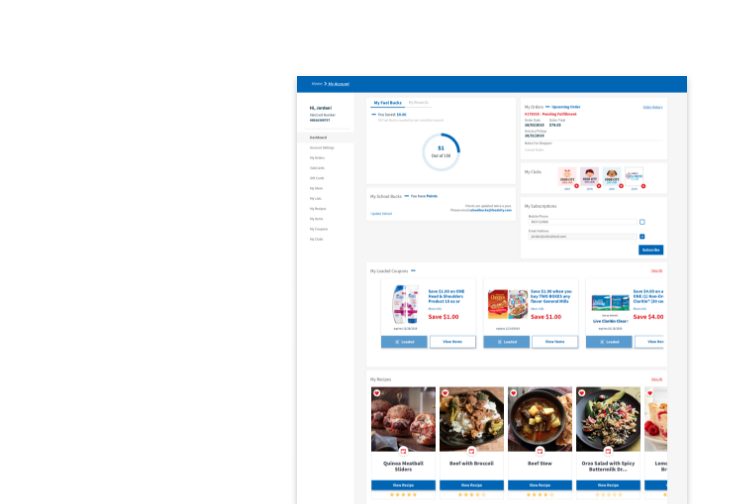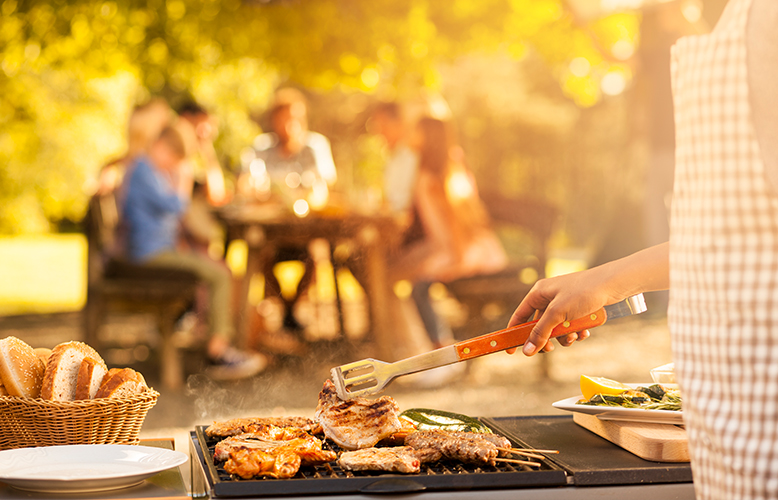
Wellness Club — Grilling Food Safety
Abingdn, VA. -
Saturday, Jun 1, 2019.
written by Elizabeth Hall, MS, RDN, LDN, Food City Registered Dietitian
It’s summertime which means it’s prime grilling season! We often focus on the delicious dishes we are going to create on the grill, but we often forget about cleaning the grill and food safety. Here are some tips to remember next time you fire up the barbeque this summer:
1. Wash your hands first: Just like with any method of food preparation, it is important to start with clean hands freshly washed with warm, soapy water. Proper handwashing can eliminate a large percentage of foodborne illness outbreaks by preventing bacteria from being transferred from the body to foods. Remember to keep washing your hands throughout cooking especially after handling raw meats and before touching ready-to-eat foods.
2. Separate, don’t cross-contaminate: It may look like you are containing the juices from raw meat and poultry, but it is sometimes extremely difficult to do so. These juices can carry harmful bacteria to ready-to-eat foods, so make sure to use separate cutting boards, plates, and cooking utensils when grilling raw foods and handling ready-to-eat foods. If you don’t have additional cooking equipment, just wash utensils with hot soapy water between raw and ready-to-eat foods.
3. Clean your grill thoroughly and often: While it is never fun to be stuck cleaning the grill after a cookout, cleaning your grill often according to the manufacturer’s instructions can help to kill any residual bacteria and remove any foodstuffs to prevent a flare up later.
4. Use a food thermometer: You can’t just rely on color alone when checking to make sure your meat is done. A food thermometer is the only trustworthy way to ensure proper doneness. Cuts of beef in steak form should be cooked to at least 145 degrees F while ground meats in a hamburger need to read 160 degrees before eating. Chicken and poultry is done when it reaches an internal temperature of 165 degrees F. A food thermometer also keeps you from unknowingly overcooking your meats. While charring is often desirable, it is best to avoid cooking at high temperatures for too long as this can increase carcinogens found in meats.
